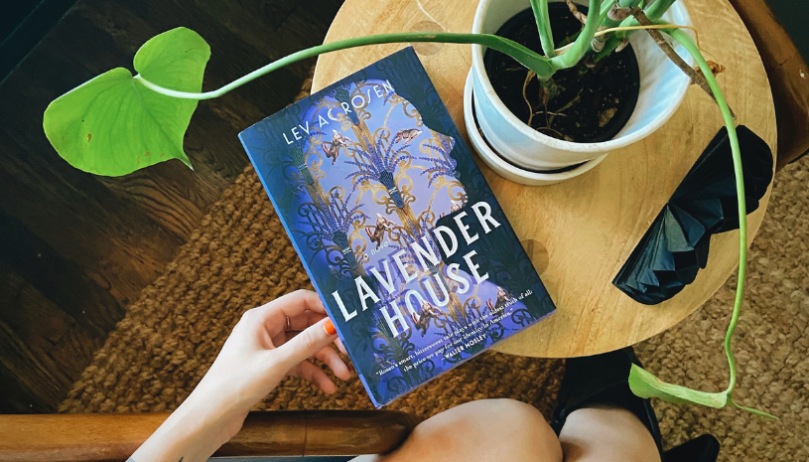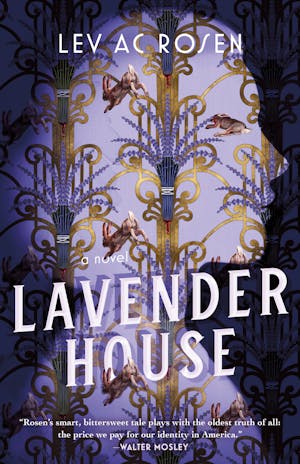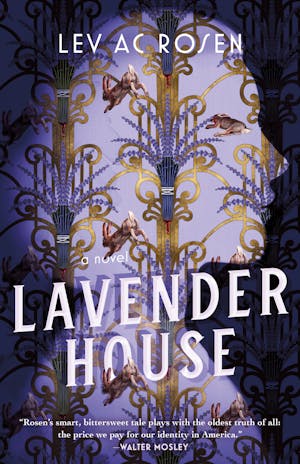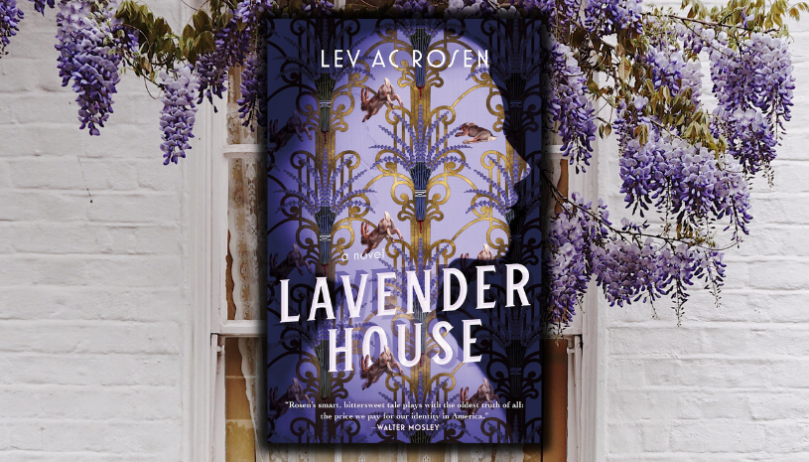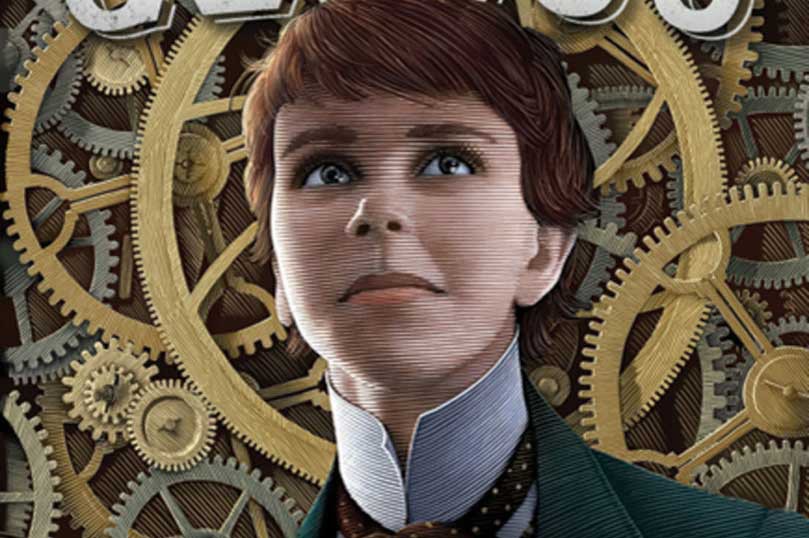 Set in atmospheric 1950s San Francisco, Rough Pages asks who is allowed to tell their own stories, and how far would you go to seek out the truth.
Set in atmospheric 1950s San Francisco, Rough Pages asks who is allowed to tell their own stories, and how far would you go to seek out the truth.
Private Detective Evander “Andy” Mills has been drawn back to the Lavender House estate for a missing person case. Pat, the family butler, has been volunteering for a book service, one that specializes in mailing queer books to a carefully guarded list of subscribers. With bookseller Howard Salzberger gone suspiciously missing along with his address book, everyone on that list, including some of Andy’s closest friends, is now in danger.
A search of Howard’s bookstore reveals that someone wanted to stop him and his co-owner, Dorothea Lamb, from sending out their next book. The evidence points not just to the Feds, but to the Mafia, who would be happy to use the subscriber list for blackmail.
Andy has to maneuver through both the government and the criminal world, all while dealing with a nosy reporter who remembers him from his days as a police detective and wants to know why he’s no longer a cop. With his own secrets closing in on him, can Andy find the list before all the lives on it are at risk?
Rough Pages will be available on October 1st, 2024. Please enjoy the following excerpt!
CHAPTER ONE
“You ready for this?” Elsie asks. We’re standing over her car—a gold Jaguar convertible—both of us looking down at it like it’s a body laid out for viewing in church and not just sitting in the garage under her bar. “It’s been a while.”
“I wanted to give them some time without me,” I say. “I’m bad memories.”
There’s no body here, but if there were, we’d be bringing it back to life.
“Nine months is a longer time than some. I thought you were never going back, honestly,” she says, sliding over the door and into the driver’s seat, the pants of her sapphire-blue suit not even catching on the edge. I don’t tell her I never thought I would, either. I figured they’d be happier without me, that the invitations were just out of politeness. But now I need to return. Not for the family, though—something I can’t tell Elsie.
“I guess it’s just been long enough.” I try to get into the car like she did but my foot catches and I tumble in, my head landing in her lap. She bursts out laughing. That’s Elsie, she’s always laugh- ing. She makes for a good landlord in that way.
“Really don’t want to go, huh?” she asks, tucking her black bob behind her ears.
“Just my feet,” I say, righting myself. “The rest of me can’t wait.”
She smirks and pulls out fast, leaving the garage under the Ruby and heading out into San Francisco.
“I hope they don’t think of death when they see me.” I’m sur- prised when I say it. I hadn’t meant for that thought to escape my head.
She laughs in the wind like I’m being funny. Around us the buildings are rising up like the fingers of a closing fist, the sun low enough on the horizon the sky is going yellow.
“Don’t be so dramatic,” she says. “They don’t remember you with death. That was Alice. She was the murderer. You were the one who caught her.” They—the whole family. The one Elsie is a part of, even if she doesn’t live there. I met them nine months ago, spring of ’52. A queer family out at a private estate, safe from the world, they thought, until one of them was murdered.
“I was there for one of the worst parts of their lives.”
“You helped them get through one of the worst parts of their lives,” she corrects. “And now you get to be there for some of the good ones. You earned that. They believe it, even if you don’t. I believe it.”
I don’t say anything. Maybe she’s right. It was my first case, the case that saved me, showed me what living a real queer life— even if a secret one behind closed gates—could look like. I found the murderer in their midst, saved the Lamontaine soap empire. But that meant dredging up a lot, picking at everyone’s lives, all while they were already in pain. I wouldn’t want to remember me, if I were them. And now they have a new baby—adopted by Henry and Margo to the outside world, who thinks they’re the couple. But really, adopted by all of them—Elsie, Margo’s girl- friend, and Cliff, Henry’s boyfriend, and Pearl, Henry’s mother, if not by blood. It’ll be a strange life for the baby, keeping that secret. If it doesn’t get out before she can talk.
Elsie reaches forward to turn on the radio. Eddie Fisher is crooning “Anytime.” Elsie starts singing along.
“For someone who runs so many musical acts,” I say, “people would think you have a better voice.”
“I don’t sing around people. Only friends. And how about you, big shot? You can identify any song from the first few notes, spend all your money on records, and I’ve never heard you sing.”
I blush. “I’m worse than you.”
“Sing with me,” she says. And what the hell, I do. We’re both terrible, howling over Eddie, as she drives us across the bridge and out of the city. We keep singing with the next song and the one after that, until I feel hoarse. Then I just watch the ocean go by on my right, the sun sinking into it like a copper penny thrown in a wishing well. I wonder how much they’ve all changed. I wonder if they all really want me there, or if it’s just Pearl again, extending an invitation for everyone without asking them.
And I wonder why Pat, the family butler and now my good friend, called me, and said he needed me to come, his voice a hushed whisper into the phone, scared, before he said not to tell anyone.
When Elsie pulls up to the gate, I get out to open it, and the smell of flowers hits me, familiar and comforting and sad all at once. Even in February, they bloom.
I was so worried about them being ready to see me, I realize I never wondered if I’m ready to see them. I pull the gate open, wait for Elsie to drive through, and close it again, making sure to lock it. The estate looks mostly the same. Flowers everywhere, glowing in the pink light of sunset. They sway toward me, and I don’t know if it’s a welcome or a warning. This is where my story started, after all. Well, my latest story. Lavender House, Pearl hiring me for my first case, meeting Elsie, becoming a PI over her gay club, starting to try to have a real life again. This was even the case I met Gene, my boyfriend, on. So much started here, and I’m grateful to it, but looking out on it, I wonder if this is somehow a bookend. If now it’s going to take back everything it gave me.
“Stop staring and get in,” Elsie says from the car. I follow her order and she drives us down to the roundabout. The house seems the same—a beautiful, huge art deco thing, surrounded by flow- ers of all colors, especially lavender. The driveway is white stones, which look silvery in the dark. The fountain at the center of the roundabout isn’t scorched anymore; they must have fixed that. It gleams and sprays arcs of water in every direction, like a flower. I never got to see it working before. It’s pretty. The sound of the water is peaceful.
Pearl comes out of the house first, her arms wide, a smile on her face. She looks the same: sixties, short, with short black hair, in a yellow blouse and white skirt.
“We finally got you here,” she says, hugging me before I’m even done getting out of the car. I glance up at the windows of the house. They’re curtained, but light shines through. No shad- ows standing in them this time.
“It’s good to see you,” I say.
“Elsie says you’re doing well, and I appreciated your Christmas letter,” she says. “But you should have come sooner.”
“I wanted to give you time, and then the baby—”
“Oh, don’t be silly, Andy.”
“He’s worried you’ll look at him and see death,” Elsie says, from the other side of the car.
Pearl’s face goes blank with shock for a moment, and I almost want to turn to Elsie, glaring, and tell her to take me back home. But then there’s a flicker of honesty, relief on Pearl’s face—yes, she does look at me and see death. After all, her wife died less than a year ago. She blinks, shakes her head.
“I see more than that, Andy.” She doesn’t lie, at least. “I see a new chapter for all of us. You included. And I see someone who looks like he hasn’t had a good meal in months. Elsie, what are you feeding him?”
“I don’t feed him,” Elsie says, headed to the door. “I just water him.”
Pearl throws her head back and cackles at that one.
“Well, come in, come in, come in . . .” She turns, waving me toward the door. Pat is standing there, waiting.
“Can I get a minute to say hi to Pat?” I ask, keeping a smile on. “I know he’s about to go help in the kitchen, so if this is my only moment . . .”
“He’ll be with us after dinner, he’s practically our nanny,” Pearl says as we walk to the door. Pat gives me a tight hug. “Oh, but sure, it would be rude if the first time he spoke to you he was serving you dinner.”
She goes inside, and Elsie follows, giving us a curious look. Then it’s Pat and me standing outside. The landing in front of the door has a beautiful art deco curve over it, and it casts both of us in shadow. Pat’s always been slender, but he seems thinner than before, his pale skin gaunt in the dark, his eyes wide. He’s in his fifties, but handsome, with high, delicate cheekbones and usually a wry smile. Not tonight, though.
“What’s going on?” I ask in a low voice.
“Thank god you’re here,” he says, barely a whisper, as he fum- bles in his pocket then takes out some cigarettes. I get out my case and light one for him before he drops them all on the ground.
“Pat? They’re going to be wondering.”
Pat was probably the first real welcome here. Pearl was kind, but she was hiring me for a job. Pat was honest—about my past, what people thought of me. He was sympathetic, and welcomed me despite everything; my being a cop until just a few days before meeting him, and my having been cold to him at the bars, cold to everyone in the community unless I wanted to be alone and naked with them. Hell, even then. Pat taking me under his wing was more than I deserved. He was funny, too, often singing and always smiling. That all seems gone now though, replaced with the kind of raw fear I’ve seen in the faces of clients before.
“You in trouble?” I ask.
“Maybe,” he says, looking at the ground, then at his cigarette. “But worse, if I am, then so is everyone in this house.”
“What?” I ask, my body cold.
He doesn’t say anything and instead inhales deeply on the cig- arette, then coughs. I realize I’ve never seen him smoke before. He coughs for a moment longer, while I wait. Finally, he looks at me.
“You know how I like to read,” he says, and I nod, thinking of his room upstairs, every wall a shelf filled with books, every table covered in them. “Well, on my day off, I usually help out at Walt’s, the bookshop up in North Beach.”
I shake my head; I don’t know it. “Help out?”
“The owners are gay. Howard and DeeDee, old old friends, both loved books, so they opened the place years ago. They stocked a lot of gay titles, so I got friendly with them, and last year they decided to start a book service, you know, sending members one book a month that’s hard to get otherwise, or maybe trying to publish some new ones themselves.”
“A book service?” I say, wondering how that could be so much trouble.
“There’s a publisher who’s been selling gay books through the mail for years, Greenberg. Sold over a hundred thousand cop- ies of The Invisible Glass. People want queer books, Andy. Don- ald Webster Cory, remember, who wrote The Homosexual in America—he started his own book service with the same idea, and so Howard and DeeDee thought, why not us, too? Just in Cal- ifornia, for people who came into the shop, people we knew . . . at first.”
“Isn’t Greenberg the one being sued by the post office? Looking at jail time, maybe.” The smoke curls from his cigarette, fading as it reaches out to the garden outside our little alcove, like it can’t escape.
Pat looks down at his hands again. “Yes. But that’s why it’s so important, Andy. These are our stories, and we need to read them, no matter what the government says. We need to read them so we know there are more of us out there, a community waiting. One guy wrote in, some college kid in Fresno, said he found a slip to sign up in a book in another store, and he signed up immediately. He’s never met another homosexual, and these stories are . . .” Pat dabs his eyes. “Howard wrote him back. He writes all of them back, so they don’t feel alone.”
I nod. “Okay. I get why this is important.” I’ve never been much of a reader, but maybe if I’d read more when I was on the force, I wouldn’t have felt quite so alone. “So what’s the danger?”
“The shop has been closed for at least a week and DeeDee and Howard haven’t been answering their phones, either. I went by on my day off, and no one was there. I’m worried. They hardly ever close this long, and never without telling me.” He takes an- other drag on the cigarette and looks at it as if he thought it would taste better.
“Maybe there was an emergency?” I ask.
“I don’t know. That’s why I’m talking to you. I’m worried that the government found out, the post office told them, and . . . sending obscene material through the mail is a federal offense, right?” He lets the cigarette fall from his hand and it lands with a splatter of red embers. He stomps it out.
“Sure, but how would that be bad for you, or the family?”
He swallows and looks up at me. Pat is usually so filled with mirth and mischief, but now he looks truly scared. “Don’t you get it? We mail subscribers the books. That means we need . . . their names, addresses . . .” He turns away, steps out of the alcove down onto the roundabout. The stones crunch under his feet and the light from the house hits him, pale and yellow. I follow him down.
“There’s a list,” I say, realizing. “A list of homosexuals.” As we walk from the house, the smell of smoke fades and the flowers’ perfume becomes stronger, overwhelming.
Pat nods. “Hundreds. And I’m on it. And I mail the ‘illicit material,’ too. If the government finds out and decides to investigate . . .” He stares up at the sky.
“They could figure out everyone here. And then the adoption . . .” It hits me all at once. Adoption is tricky. The government investi- gates the families. The Lamontaines must have had to play pretend for a long time just for the adoption to go through. If the govern- ment finds out the family employs a homosexual, even if they pre- tend they didn’t know . . . I swallow.
He nods, looking back at the house and then walking along the side of it. There are bare trees here, with long, thin branches. I remember they bloomed pink, once. When we’ve reached the side of the house, he steps off the roundabout onto the grass and kicks it. “They’ll take her away. I’m so sorry, Andy. I just . . .” He looks down again and starts crying. I reach forward to put my hand on Pat’s shoulder.
“Okay, Pat. I’ll look into it. And if they do have the list, I’ll figure out how to make sure the family stays safe.”
He reaches out and clutches my hand tightly in his. “Thank you, Andy. I’m so scared. What if I’ve ruined everything?”
I don’t say anything. I don’t have the words to tell him that maybe he has.
Click below to pre-order your copy of Rough Pages, available October 1st, 2024!
opens in a new window opens in a new window
opens in a new window opens in a new window
opens in a new window opens in a new window
opens in a new window opens in a new window
opens in a new window


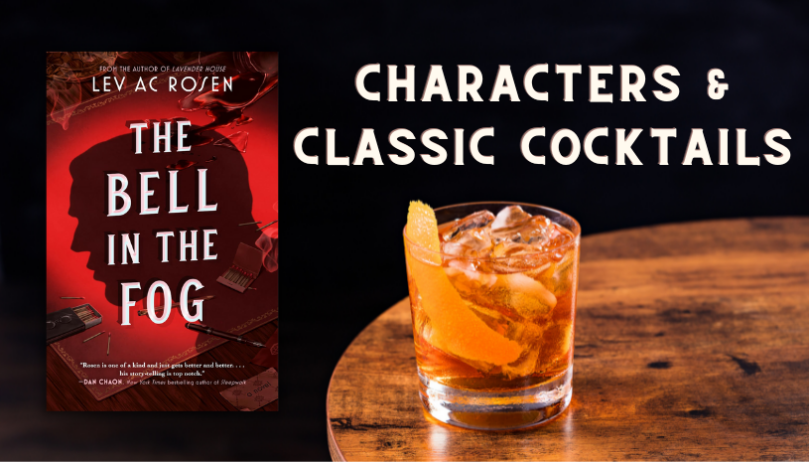
:max_bytes(150000):strip_icc():format(webp)/mint-julep-720x720-primary-5e2063b906384479b345687201992bd0.jpg)

:max_bytes(150000):strip_icc():format(webp)/__opt__aboutcom__coeus__resources__content_migration__liquor__2017__09__01105623__espresso-martini-720x720-recipe-Molly-909b41dfe98c4f49b65a319ae28dd51e.jpeg)

:max_bytes(150000):strip_icc():format(webp)/__opt__aboutcom__coeus__resources__content_migration__liquor__2018__05__08113350__bourbon-old-fashioned-720x720-recipe-ade6f7780c304999be3577e565c9bcdd.jpg)
